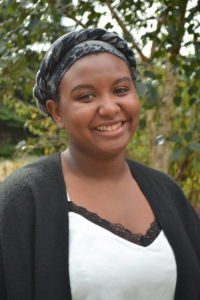BROOKE THAMES; Editor-in-Chief; thamesbe@plu.edu
I ask a lot of questions. Whether I’m making an argument or thinking through a social issue, I use questions to guide my thoughts.

I often find the questions I ask say more about how I think than the answers I give, creating a roadmap of my ideas and perceptions. I’m often surprised at how the right line of critical questioning can make or break my opinion.
Asking hard questions isn’t always easy, especially as a journalist whose job often requires asking questions designed to challenge, explore and unpack. Critical questions, while not always comfortable, serve to create meaningful conversation around the issues that not only affect our campus but also our world at large.
Journalism — like all forms of communication — at its pinnacle is a conversation. The most fruitful kind of conversation is that which is lead by thoughtful inquiry.
This issue of the Mast shows thoughtful inquiry in action. Our news section highlights the ways students paired critical analysis and research to host conversations about topics that matter to them. The Culture section dives into gender equality in the theatre department, investigating the truth about female representation on the stage. LASR General Manager Jeff Dunn sounds off on the Pepsi protest ad in Opinion, where he questions the soda company’s controversial message.
From the classroom to the newsroom, critical investigation drives dynamic discussion. The questions we pose not only shape how we exchange with peers of all backgrounds and opinions, but also how we navigate our own beliefs and positions.
I find more often than not that the toughest questions provide gateways to the most enriching conversations. In constructing a holistic perspective, a critical question sometimes makes all the difference.
























